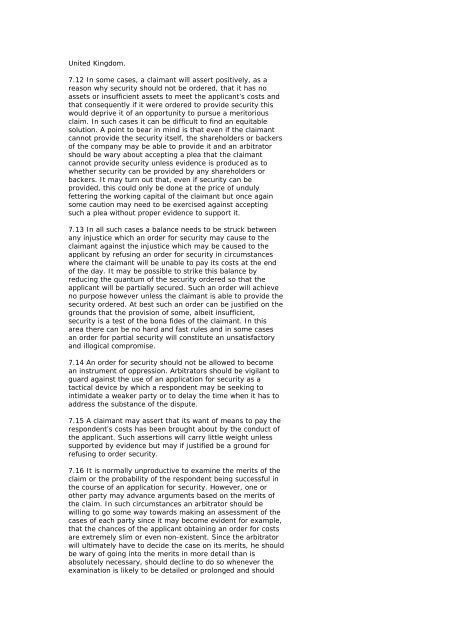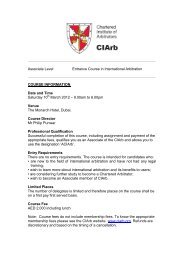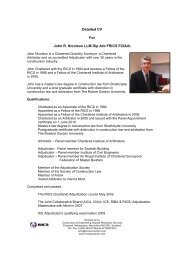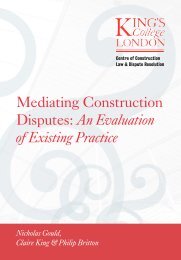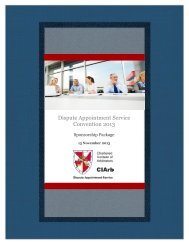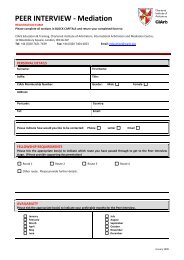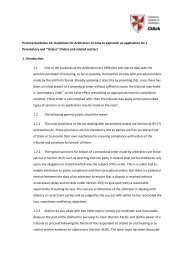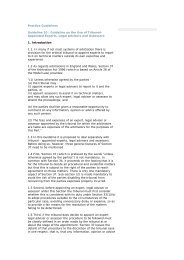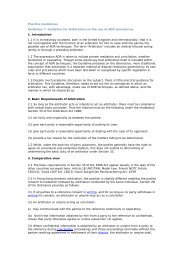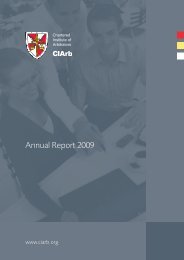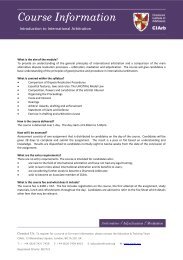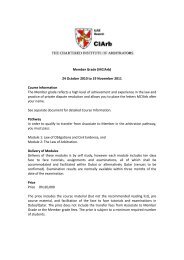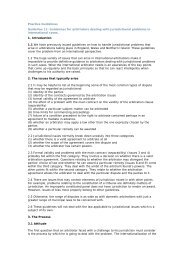Practice Guidelines - CIArb
Practice Guidelines - CIArb
Practice Guidelines - CIArb
Create successful ePaper yourself
Turn your PDF publications into a flip-book with our unique Google optimized e-Paper software.
United Kingdom.<br />
7.12 In some cases, a claimant will assert positively, as a<br />
reason why security should not be ordered, that it has no<br />
assets or insufficient assets to meet the applicant’s costs and<br />
that consequently if it were ordered to provide security this<br />
would deprive it of an opportunity to pursue a meritorious<br />
claim. In such cases it can be difficult to find an equitable<br />
solution. A point to bear in mind is that even if the claimant<br />
cannot provide the security itself, the shareholders or backers<br />
of the company may be able to provide it and an arbitrator<br />
should be wary about accepting a plea that the claimant<br />
cannot provide security unless evidence is produced as to<br />
whether security can be provided by any shareholders or<br />
backers. It may turn out that, even if security can be<br />
provided, this could only be done at the price of unduly<br />
fettering the working capital of the claimant but once again<br />
some caution may need to be exercised against accepting<br />
such a plea without proper evidence to support it.<br />
7.13 In all such cases a balance needs to be struck between<br />
any injustice which an order for security may cause to the<br />
claimant against the injustice which may be caused to the<br />
applicant by refusing an order for security in circumstances<br />
where the claimant will be unable to pay its costs at the end<br />
of the day. It may be possible to strike this balance by<br />
reducing the quantum of the security ordered so that the<br />
applicant will be partially secured. Such an order will achieve<br />
no purpose however unless the claimant is able to provide the<br />
security ordered. At best such an order can be justified on the<br />
grounds that the provision of some, albeit insufficient,<br />
security is a test of the bona fides of the claimant. In this<br />
area there can be no hard and fast rules and in some cases<br />
an order for partial security will constitute an unsatisfactory<br />
and illogical compromise.<br />
7.14 An order for security should not be allowed to become<br />
an instrument of oppression. Arbitrators should be vigilant to<br />
guard against the use of an application for security as a<br />
tactical device by which a respondent may be seeking to<br />
intimidate a weaker party or to delay the time when it has to<br />
address the substance of the dispute.<br />
7.15 A claimant may assert that its want of means to pay the<br />
respondent’s costs has been brought about by the conduct of<br />
the applicant. Such assertions will carry little weight unless<br />
supported by evidence but may if justified be a ground for<br />
refusing to order security.<br />
7.16 It is normally unproductive to examine the merits of the<br />
claim or the probability of the respondent being successful in<br />
the course of an application for security. However, one or<br />
other party may advance arguments based on the merits of<br />
the claim. In such circumstances an arbitrator should be<br />
willing to go some way towards making an assessment of the<br />
cases of each party since it may become evident for example,<br />
that the chances of the applicant obtaining an order for costs<br />
are extremely slim or even non-existent. Since the arbitrator<br />
will ultimately have to decide the case on its merits, he should<br />
be wary of going into the merits in more detail than is<br />
absolutely necessary, should decline to do so whenever the<br />
examination is likely to be detailed or prolonged and should


